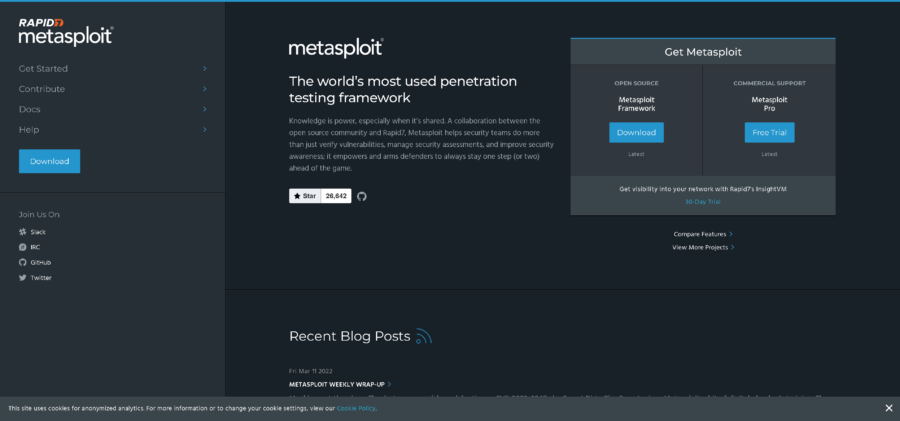Even during these uncertain times, once fierce competitors are now collaborating and co-existing to not only survive, but thrive. Salesforce is partnering with Microsoft and AWS for better customer success. Apple is partnering with Microsoft to better integrate their platforms and technologies, What we are seeing is the rise of the “ecosystem of ecosystems” – a silent trend that is changing the way businesses compete and operate.
The “people-first approach” taken by companies to create ecosystems around their customers’ needs has only been accelerated in the wake of the sweeping impact of the COVID-19 crisis. While each of these ecosystems grow and expand the art of possible, the speed of the change continues to force them to look at rapid integration of best of breed capabilities outside of their ambit to drive the next wave of innovation.
Google search, Amazon’s voice-based applications, and Microsoft’s cloud hosting play are themselves the result of an enormous amount of innovation. Though to truly be centered around your customers’ needs will require an organization to be able to drive this innovation in collaboration with other companies in order to reach the end user.
Take for example Salesforce, which has one of the largest diverse partner ecosystems, including in-depth connections with leading market players such as Google, Microsoft, IBM, and AWS.
According to International Data Corporation (IDC) research conducted in October 2019, Salesforce and its ecosystem of partners are projected to create 4.2 million new jobs with over $1.2 trillion new business revenue between 2019 and 2024. In addition, Salesforce is expected to help partner ecosystems thrive with $5.80 in gains for every $1 that Salesforce makes by 2024. Key drivers contributing to the ecosystem growth include:
In addition, Salesforce named Microsoft Azure as its public cloud provider for Salesforce Marketing Cloud. This partnership is aimed at reducing customer onboarding time and helping them expand globally faster by leveraging Azure’s footprint.
As part of the agreement, a new integration between Salesforce Sales and Service Clouds with Microsoft Teams will give users the ability to search, view and share Salesforce records directly within Teams. Planned to be made available in the end of 2020, this new feature is expected to boost productivity significantly.
In another such partnership with Amazon Web Services (AWS), Salesforce will integrate with and offer Amazon Connect as part of Salesforce Service Cloud Voice, enabling customers to deliver customer service support at a lower cost.
For instance, AWS learning content will now be available on Trailhead, Salesforce’s free online learning platform, enabling users to upskill for the future. Salesforce is also exploring ways to make Einstein Voice Skills compatible with Amazon Alexa.
Salesforce has also expanded its ecosystem through acquisitions. For example, its acquisition with MuleSoft enabled customers to build application networks connecting applications, data, and devices across cloud and on-premise, whether they touch Salesforce or not. The acquisition helped companies to innovate faster and deliver connected customer experiences across different channels and touchpoints.
Similarly, by acquiring Tableau in 2019, Salesforce was able to deliver AI-driven insights for intelligent business decisions and better customer experiences. This enabled companies to unlock greater value from data with a broader and deeper analytics platform.
In fact, for organizations to be successful, getting closer with customers with what they need, when they need it and in a manner that they best relish requires unwavering focus on understanding their customer journey. Crafting broader partnerships across technology stacks that form the machinery behind delivering these delightful experiences helps companies like Salesforce, Microsoft and AWS bring the innovation outside their borders.
For instance, in order to help organizations deliver the scale and availability of applications, Salesforce planned to host their marketing products on Azure exclusively. This helped Salesforce to pass scale benefits on to its users through Microsoft, and then focus on continuously improving the performance of their marketing suite products.
Finally, markets are volatile, and global occurrences, such as COVID-19, can change the business direction overnight. Banking on an open ecosystem ensures that these organizations are able to respond faster, minimize economic impact and sustain their investments, and yet be able to align business to the new world order.
These partner ecosystems are well positioned to help customers speed up their digital transformation journey. Every year these ecosystems grows bigger and more impressive. Given the pace of on-going changes, adapting to the new world order requires a different mindset and skillset. Organizations need to focus on multi-skilled workforce and develop training programs across different leading ecosystems. And above all, have an ecosystem mindset that helps to bring products faster to market with a competitive edge over other firms.
By Suraj Gupta





